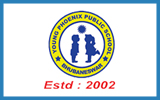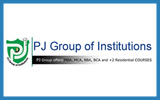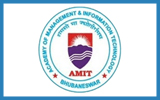Eazyscholar offers an exceptional Inventory Management Software module designed to handle the procurement of materials required by educational institutions. From furniture and computers to laboratory equipment and various supplies, this software efficiently manages the inventory and warehousing needs of your institute. It also tracks the movement of items between different departments within the school or college. By implementing Inventory Management Software, institutions can optimize their investments, eliminate stagnant stock, and reduce repetitive tasks.
The Inventory Management Software provided by Eazyscholar is a versatile solution that caters to the unique inventory requirements of educational institutes. It offers comprehensive features that facilitate efficient stock-taking and warehousing processes. With this software, you can easily keep track of the availability and utilization of various resources within your institution. One of the key advantages of Inventory Management Software is its ability to effectively manage stock levels. By accurately tracking the quantity of each item in your inventory, the software ensures that you always have the necessary materials on hand without excessive stockpiling. This optimizes resource allocation and reduces wastage.
Moreover, the software enables seamless movement of items between different departments within the institution. Whether it's transferring equipment from the science lab to the computer lab or reallocating furniture between classrooms, the Inventory Management Software streamlines the process. It provides a centralized platform where administrators can request and track the movement of items, ensuring efficient utilization of resources across departments. In addition to inventory control and inter-departmental transfers, the software helps educational institutes minimize financial losses and increase profitability. By identifying and eliminating stagnant stock, which refers to items that have remained unused or unsold for extended periods, institutions can avoid tying up capital in non-performing assets. This proactive approach to managing inventory ensures that funds are allocated to more productive investments.

The ERP software tracks inventory movement across multiple locations in real time, providing visibility into stock levels. This enables informed decisions on replenishment and stock transfers for efficient inventory management.
RP systems incorporate order processing features to efficiently manage customer orders, track their status, and optimize fulfillment. This ensures precise inventory allocation and timely shipment of orders for enhanced customer satisfaction.
The ERP software assists in stock management by providing information on stock availability, reorder points, and minimum quantities. It generates alerts for low stock levels and automatically generates purchase orders when necessary.
Eazyscholar ERP simplifies procurement processes in institutions through features like purchase requisitions, vendor management, and purchase order tracking. It ensures transparency and efficiency, minimizing stockouts and unnecessary expenses.
ERP systems incorporate order processing capabilities to efficiently manage customer orders, track their status, and streamline fulfillment. This ensures accurate inventory allocation and timely shipment of orders, enhancing overall operational efficiency.
The ERP software supports barcode integration, enabling institutions to streamline the inventory management process. Barcodes can be assigned to items, making it easier to track and update inventory levels accurately.



























Eazyscholar ERP software enables businesses to track and trace individual items or batches using unique identifiers, enhancing inventory management and supply chain visibility.

Eazyscholar ERP software enables accurate demand forecasting by collecting data, performing statistical analysis, and facilitating collaboration. Benefits include inventory optimization, improved customer service, and reduced costs.

Eazyscholar ERP software utilizes real-time data integration and automation to enhance operational efficiency, facilitate informed decision-making, and provide up-to-date information for businesses.

Eazyscholar ERP software optimizes warehouse operations with features like bin management, zone designation, and real-time inventory tracking, ensuring efficient inventory control and accurate order fulfillment.

Eazyscholar ERP software utilizes advanced data analysis and machine learning algorithms to enable accurate demand forecasting. This helps businesses optimize inventory, improve customer service, and enhance overall operational efficiency.

Eazyscholar ERP software enables businesses to effectively manage suppliers, streamline procurement processes, and maintain strong supplier relationships, ensuring reliable supply and operational efficiency.
Inventory management ERP software is a system that helps businesses effectively manage and track their inventory across various stages of the supply chain. It provides tools and functionalities to optimize inventory levels, streamline purchasing and procurement, monitor stock movements, and ensure accurate inventory data.
Some key benefits of using inventory management ERP software include:
• Improved inventory accuracy and visibility
• Enhanced order fulfilment and customer satisfaction
• Reduced carrying costs and inventory obsolescence
• Streamlined procurement and supplier management
• Efficient demand forecasting and inventory planning
• Integration with other business processes (e.g., sales, accounting) for seamless operations.
Inventory management ERP software typically integrates with various modules within an ERP system. It collects data from different sources such as sales, purchases, manufacturing, and logistics to provide a centralized view of inventory. It tracks stock levels, manages replenishment, generates reports and analytics, and supports inventory optimization strategies.
main features to consider when selecting inventory management ERP software include:
• Inventory tracking and stock management
• Reorder point and safety stock management
• Barcode and RFID integration for accurate inventory counts
• Serial and batch number tracking
• Inventory valuation methods (FIFO, LIFO, etc.)
• Demand forecasting and planning
• Purchase order management
• Supplier and vendor management
• Warehouse and location management
• Reporting and analytics.
Inventory management ERP software can benefit businesses of all sizes, including small businesses. However, the complexity and scale of the software may vary. Some ERP solutions offer scaled-down versions or cloud-based options that cater specifically to the needs and budget of small businesses.
The cost of inventory management ERP software can vary significantly depending on factors such as the vendor, features included, implementation requirements, and user licenses. Pricing models can range from one-time license fees to monthly or annual subscription fees. It is advisable to request quotes from different vendors to get an accurate estimate for your specific requirements.
Yes, many inventory management ERP software solutions offer customization options to tailor the software to specific business needs. This may involve configuring workflows, adding custom fields, or integrating with third-party systems. However, customization efforts may impact implementation time and cost, so it's important to evaluate the trade-offs.
Most ERP vendors provide training and support options to assist with software implementation and ongoing usage. These can include user documentation, online resources, training programs, and customer support channels such as email, phone, or live chat. It's important to inquire about the available support options before selecting an inventory management ERP software.
The implementation timeline for inventory management ERP software can vary depending on factors such as the complexity of the system, data migration requirements, customization needs, and the availability of resources from the vendor and the business itself. Implementations can range from a few weeks to several months, so it's advisable to discuss the expected timeline with the ERP vendor during the evaluation process